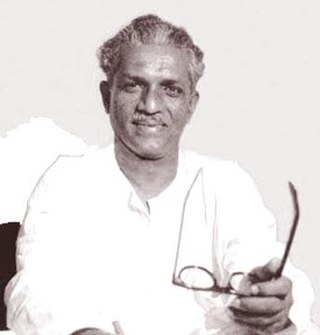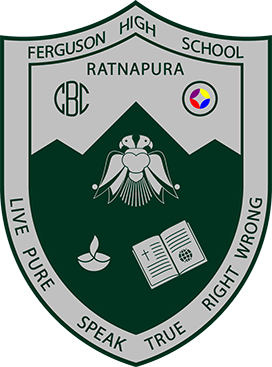Related Research Articles
The Baptist Churches of New Zealand is an Baptist Christian denomination in New Zealand. Its headquarters are in Auckland, and it is affiliated with the Baptist World Alliance.
Baptists Together, formally the Baptist Union of Great Britain, is a Baptist Christian denomination in England and Wales. It is affiliated with the Baptist World Alliance and Churches Together in England. The headquarters is in Didcot.
The Nagaland Baptist Church Council is a Baptist Christian denomination based in Nagaland, India. It is affiliated with the Council of Baptist Churches in Northeast India and the Asia Pacific Baptist Federation. The headquarters is located in Kohima, the capital of Nagaland.

The Christian Conference of Asia is a regional ecumenical organisation representing 15 National Councils and over 100 denominations (churches) in New Zealand, Australia, Bangladesh, Burma, Cambodia, East Timor, Hong Kong, India, Indonesia, Laos, Japan, Korea, Malaysia, Pakistan, Philippines, Sri Lanka, Taiwan and Thailand.

Peduru Hewage William de Silva was a 20th-century Marxist/Trotskyist Sri Lankan politician.

Don Philip Rupasinghe Gunawardena was a Sri Lankan Marxist politician and leftist. A founder of the Lanka Sama Samaja Party, the first political party in Ceylon which was known for having introduced Trotskyism, he later founded the Mahajana Eksath Peramuna and was called 'the Father of Socialism' and 'the Lion of Boralugoda'. A member of the State Council of Ceylon and the Parliament of Ceylon, he served as the Minister of Agriculture and food under S. W. R. D. Bandaranaike from 1956 to 1959 and as Minister of Industries and Fisheries in the national government under Dudley Senanayake from 1965 to 1970.

Christianity is a minority religion in Sri Lanka. It was introduced to the island in first century. Traditionally, after Thomas the Apostle's visit in Kerala in AD 52, Christianity is said to have been introduced to Sri Lanka because of its close geographical and commercial ties.

According to the 2012 census, 6% of the population of Sri Lanka was Christian; of these, one in ten was Protestant, showing that there were approximately six Protestants for every 1,000 Sri Lankans. Later estimates suggest that this share has doubled in less than ten years.

The Theological College of Lanka (TCL) is an ecumenical college for Pastoral Formation (seminary) that was inaugurated in 1963 by the Anglican Church, the Methodist Church and the Baptist Church in Sri Lanka. Later the Presbyterian Church joined the federation; Goals of the seminary being ministerial formation, education and empowering the new clergy (ministers) and laity in the environment and context of Sri Lanka and their own languages, Sinhala and Tamil. Graduates primarily serve the national churches in Sri Lanka and beyond. Rev. Basil Jackson, a British Methodist Missionary, became the founding Principal of the college in 1963.. It is believed that language is the vehicle of culture and when Christians begin to think, speak, preach, pray and write in their own languages, they soon become familiar with their cultural values and begin to appreciate them in the practice of their Christian faith. This new step was foreseen by all the churches as an attempt to produce indigenous theology and Sri Lankan Hermeneutics by people who are being educated in Sri Lanka.

The Asia Pacific Baptist Federation (APBF) is a federation of 65 Baptist associations and is one of six regional fellowships in the Baptist World Alliance. The headquarters is in Okinawa City, Japan.

The Bangladesh Baptist Church Sangha is a Baptist Christian denomination in Bangladesh. It is affiliated with the Baptist World Alliance. The headquarters is in Dhaka.

The Church of Ceylon is the Anglican Church in Sri Lanka. It is an extraprovincial jurisdiction of the Archbishop of Canterbury, who serves as its Metropolitan. It was established in 1845 with the appointment of the first Anglican Bishop of Colombo, James Chapman and until 1950 it consisted of a single diocese; in that year a second diocese was established at Kurunegala.

Carey College, Colombo, is a private school for boys in Sri Lanka.It was founded in 1914 by Baptist missionaries and offers primary and secondary education. The college started by Rev H.J Charter and one of the oldest private school in Colombo.
The first Europeans to arrive to Sri Lanka were the Portuguese in 1505. During their time, no attempt was made to translate the Bible into Sinhalese.

The Christian Reformed Church of Sri Lanka is the oldest Protestant church on the island.
The Methodist Church of Sri Lanka is a Protestant Christian denomination in Sri Lanka. Its headquarters is in Colombo and was established on 29 June 1814. It is a member of the World Council of Churches, the Christian Conference of Asia, the National Christian Council of Sri Lanka and the World Methodist Council.

The Diocese of Colombo is based in Colombo, Sri Lanka. The diocesan bishop's seat is Cathedral of Christ the Living Saviour. The current bishop of Colombo is Dushantha Lakshman Rodrigo.
The Pathans of Sri Lanka were a Muslim community in Sri Lanka of Pashtun ancestry. Most of them left in the 20th century, however a small number of families living in the country still claim Pathan ancestry.
Bernard Jayasuriya was a Ceylonese businessman and politician.

Ferguson High School is a National School in Sri Lanka affiliated with the Sri Lanka Baptist Sangamaya located in Ratnapura District. School has two sections - the Primary section, which serves students from Grade 1 to Grade 5, and the Secondary section, which serves students from Grade 6 to Grade 13.
References
- ↑ "About Us - Baptist Church - Srilanka".
- ↑ Johnson 2010, p. 205.
- ↑ Brackney 2009, p. 540.
- ↑ ^ Gunawardena 2006, p.44.
- ↑ Ceylon Baptist Council (Incorporation)
- ↑ Baptist Missionary Society
- ↑ Baptist World Alliance, Members, baptistworld.org, USA, retrieved May 5, 2023
- ↑ National Christian Council (NCC)
- ↑ Baptist World Alliance Archived 2012-06-27 at the Wayback Machine
- ↑ Asian Baptist Federation Archived 2012-07-23 at archive.today
- ↑ Christian Conference of Asia
^ Johnson 2010, p. 205. ^ Brackney 2009, p. 540. ^ Gunawardena 2006, p.44. ^ Ceylon Baptist Council (Incorporation) ^ Baptist Missionary Society ^ National Christian Council (NCC) ^ Baptist World Alliance ^ Asian Baptist Federation ^ Christian Conference of Asia